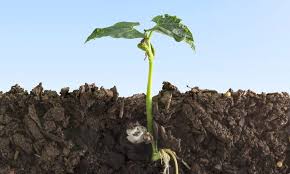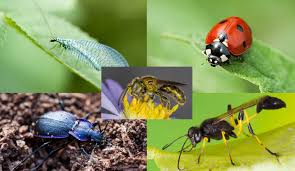Organic gardening is more than a trend; it’s a sustainable approach that benefits both the environment and our health. As we move into 2024, the focus on eco-friendly and sustainable gardening practices continues to grow. Whether you’re a seasoned gardener or just starting, these top organic gardening tips will help you cultivate a thriving and environmentally friendly garden.
<!– Replace with an actual image URL –>
1. Start with Healthy Soil

Overview
Healthy soil is the foundation of a successful organic garden. Investing time and effort into creating nutrient-rich soil will pay off with vibrant plants and higher yields.
Tips for Healthy Soil
- Compost Regularly: Use kitchen scraps, yard waste, and other organic materials to create rich compost. Compost improves soil structure and provides essential nutrients.
- Test Your Soil: Conduct a soil test to determine pH levels and nutrient deficiencies. This will help you tailor your soil amendments.
- Use Mulch: Apply organic mulch like straw, leaves, or wood chips to retain moisture, suppress weeds, and improve soil health.
<!– Replace with an actual image URL –>
2. Choose Organic Seeds and Plants
Overview
Selecting organic seeds and plants is crucial for maintaining the integrity of your garden. Organic seeds are grown without synthetic pesticides or fertilizers and are more likely to thrive in an organic garden.
Tips for Choosing Seeds and Plants
- Look for Organic Certification: Choose seeds and plants with organic certification to ensure they meet organic standards.
- Select Disease-Resistant Varieties: Opt for varieties that are resistant to common pests and diseases, reducing the need for interventions.
- Support Local Growers: Purchase from local nurseries and seed companies that specialize in organic and heirloom varieties.
<!– Replace with an actual image URL –>
3. Practice Companion Planting
Overview
Companion planting involves growing different plants together that benefit each other. This practice can improve plant health, enhance growth, and deter pests naturally.
Tips for Companion Planting
- Plant Marigolds: Marigolds repel aphids and other pests, making them great companions for vegetables and herbs.
- Grow Basil with Tomatoes: Basil enhances the flavor of tomatoes and helps repel certain insects.
- Use Beans and Peas: These legumes fix nitrogen in the soil, benefiting nitrogen-hungry plants like corn and lettuce.
<!– Replace with an actual image URL –>
4. Implement Water Conservation Techniques
Overview
Efficient water use is essential for a sustainable garden. Implementing water conservation techniques will help you manage resources effectively and reduce your garden’s environmental impact.
Tips for Water Conservation
- Install Drip Irrigation: Drip irrigation systems deliver water directly to plant roots, minimizing waste and ensuring efficient use.
- Collect Rainwater: Use rain barrels to collect and store rainwater for garden use. This reduces dependence on municipal water supplies.
- Water Early or Late: Water your garden early in the morning or late in the evening to reduce evaporation losses.
<!– Replace with an actual image URL –>
5. Encourage Beneficial Insects

Overview
Beneficial insects play a vital role in maintaining garden health by controlling pest populations and pollinating plants. Attracting and supporting these insects can reduce the need for chemical interventions.
Tips for Attracting Beneficial Insects
- Plant Flowers: Flowers like lavender, daisies, and coneflowers attract beneficial insects such as bees, ladybugs, and lacewings.
- Provide Habitat: Create habitats like insect hotels or leaf piles to offer shelter and nesting sites.
- Avoid Pesticides: Refrain from using synthetic pesticides, which can harm beneficial insects and disrupt the ecosystem.
<!– Replace with an actual image URL –>
6. Use Organic Fertilizers
Overview
Organic fertilizers provide essential nutrients to plants without the harmful effects of synthetic chemicals. They enhance soil health and promote sustainable growth.
Tips for Using Organic Fertilizers
- Compost Tea: Brew compost tea from well-aged compost to provide a nutrient-rich liquid fertilizer.
- Manure: Use well-aged manure from herbivores like cows or chickens to add nutrients and improve soil structure.
- Seaweed Extract: Seaweed extract is a natural fertilizer that provides a range of trace minerals and growth hormones.
<!– Replace with an actual image URL –>
7. Practice Crop Rotation
Overview
Crop rotation involves changing the location of plant families in your garden each year. This practice helps prevent soil depletion, reduces pest and disease buildup, and maintains soil fertility.
Tips for Effective Crop Rotation
- Rotate Plant Families: Avoid planting the same plant family (e.g., tomatoes, peppers) in the same spot year after year.
- Use Cover Crops: Grow cover crops like clover or rye to improve soil health and add organic matter.
- Plan Ahead: Create a rotation plan that incorporates various plant families and their specific needs.
<!– Replace with an actual image URL –>
8. Manage Weeds Naturally
Overview
Weeds compete with your garden plants for nutrients and water. Managing them organically will help maintain a healthy garden environment.
Tips for Managing Weeds
- Hand Weeding: Regularly remove weeds by hand or with a hoe, focusing on the root to prevent regrowth.
- Mulch: Apply organic mulch to suppress weed growth and retain soil moisture.
- Use Weed Barriers: Place weed barriers like landscape fabric or cardboard to prevent weed seeds from germinating.
<!– Replace with an actual image URL –>
9. Promote Biodiversity
Overview
Biodiversity enhances garden resilience by creating a balanced ecosystem. A diverse garden supports various plant species, beneficial insects, and wildlife.
Tips for Promoting Biodiversity
- Plant Variety: Include a range of plants with different bloom times and growth habits.
- Create Wildlife Habitats: Install birdhouses, bat boxes, and pond features to attract wildlife.
- Avoid Monocultures: Avoid planting large areas of a single crop, which can attract pests and deplete soil nutrients.
<!– Replace with an actual image URL –>
10. Educate Yourself and Stay Updated

Overview
Keeping up with the latest trends and research in organic gardening will help you adapt and improve your practices. Continuous learning is key to a successful and sustainable garden.
Tips for Staying Informed
- Read Books and Articles: Explore books and online resources about organic gardening techniques and innovations.
- Join Gardening Groups: Participate in local or online gardening communities to share knowledge and experiences.
- Attend Workshops: Take part in workshops or webinars to learn new skills and stay updated on best practices.
<!– Replace with an actual image URL –>
Conclusion
Organic gardening is a rewarding and impactful practice that promotes environmental health and sustainability. By implementing these top organic gardening tips for 2024, you can create a flourishing garden that benefits both you and the planet. Embrace these practices, and enjoy a healthier, more vibrant garden this year.



